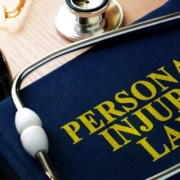Your Brain Bounces Around in Your Skull in a Concussion—Preventable?
By Marilyn Silverman
There is a frightening plethora of medical conditions that lurk just around the corner and can bombard you with devastating repercussions without any warning. It can be in your home, the street outside your home, your workplace, your car. Wouldn’t it be wonderful to know that to a degree they are preventable? Very frequently, incorporating commonsense preventative measures into your everyday routine can do the trick. Let’s talk about one of these medical ailments—concussions and let’s insert a definition from a respected source, the Mayo Clinic. They involve “a violent blow to your head and neck and upper body that can cause your brain to slide back and forth forcefully against the inner walls of your skull.” You would like to erase from your mind the image of your brain-—such a vital bodily organ—bouncing around inside your skull.
Now, your inevitable question—are they preventable? First, let us clarify the general consensus regarding concussions–they are not just idiosyncratic of football players. The victims could be your elderly parents who fell in the bathroom, you as a young parent falling on your children’s toys strewn about the floor. You can be in a car smash- up. You can be on that construction site before the outer perimeters of the building are erected. In essence, we are all vulnerable at all times at all places.
There is a work environment where workers customarily wear a common type of wearing apparel—hard hats. The men and now women, who want to build our cities to even greater heights, know that their career choice is “one of the most dangerous work environments,” according to Occupational Health Center. Nonetheless, safety measures can be implemented so that workers are not rushed to the nearest ER in a screaming ambulance. You go to work to collect that paycheck, not to change into a hospital gown. Here are some ways to prevent concussions while you are climbing that scaffold:
- Warning signs should be posted, read, memorized and obeyed.
- Those signs should explain the inherent risks of injury.
- Those signs should recommend appropriate attire.
- Those instructions should be recommended before anyone crosses the threshold of the construction area.
- Employers should “maintain a quality safety program…that educates employees on head injury protection and education safety guidelines.” The key word in this sentence is education. Just because a safety program has been implemented, nevertheless, your boss should “periodically review the company’s safety guidelines to make sure they are up to date and cover all situations employees might face on the job sites.” You are an entrepreneur —you should not only be concerned about profits, but about the health and safety of your workers.
If construction workers begin their workday and see these warning signs in large lettering, why should they be so foolish to ignore them? Safety & Health Magazine cites an example. It’s a scorching hot day with its partner, humidity, and the construction worker is overheated and tosses aside his hard hat, or he hasn’t been injured as yet, and figures he’ll always be lucky.
Now let’s jump to another milieu where you are vulnerable—your home. You assume that within the sanctuary of your home, safety prevails. Not if you are elderly or if your children’s playground is the floor.
Virtua Health says to avoid a mishap in your home:
- Install handrails on staircases
- If you have young children, install gates at the top and bottom of your staircases.
We are all incredibly busy these days so we might forget, just be too lazy or exhausted, so consequently, we don’t tidy up our homes as expeditiously as we should.
You usually don’t associate the bathroom as a dangerous room. But if your family circle includes an elderly parent who enters the bathroom and closes the door and who might open himself up to a fall, go to a hardware store and purchase:
- Shower /tub seat
- Low-entry shower
- Handrail in the tub
- If your apartment is not furnished with wall to wall carpet, don’t walk barefoot; wear instead nonslip socks or slippers.
You want to go outside. The perils continue. What can happen outdoors? Plenty. Don’t just walk outside and dreamily gaze at the floating clouds in the azure sky or admire the beauty of nature. According to Ventura Health, be aware of the ground beneath your feet, particularly on those days the meteorologist predicted rain or snow. Be prepared for your activities whether you decide to go for a run, walk or bike ride. Familiarize yourself with the path and wear appropriate footwear.” Leave those slippery flip flops in the closet and wear water repellent boots in the rain.
Your car today is no longer a vehicle that just takes you from Point A to Point B. Now it’s a vehicle where you take advantage of today’s technology and text and it’s also your dinner table. As a result of all of these distractions, you cannot concentrate on the road ahead of you in your immediate line of vision. If you don’t want to be lying on a hospital bed with your loved ones standing around you with sad faces and with all of your regrets, remember, that text message could have waited until you parked your car. Eating that sandwich could have waited until you parked your car; you could not have been that hungry.
Buckle up your seat belt; it’s not just embellishment for the interior of your car. According to Universal Class, “the sudden lurch forward when a car stops abruptly can cause brain damage, but a seat belt …can lessen the damage.” Regularly inspect your air bags to ascertain that they are in tip top shape. Remember your passengers. Mainline.org tells you your child should be seated in age and size appropriate car seats and booster seats.
According to Inside Science, “Benjamin Franklin once said that an ounce of prevention is worth a pound of cure. Words of wisdom that ring true in today’s field of public health as they did in the streets of colonial Philadelphia.”
If you have suffered a concussion, you should immediately contact the Law Firm of Figeroux & Associates at 855-768-8845.












Leave a Reply
Want to join the discussion?Feel free to contribute!